Career success today demands more than knowledge. Professionals are expected to demonstrate mastery, apply complex skills in real-world situations, and continuously evolve as their industries change. That’s where certifications and credentials come in. They offer a way to validate capability, build confidence, and increase mobility across job roles, organizations, and even international borders.
More professionals are turning to certifications, specialty certificates, and microcredentials to advance their careers. Employers rely on these programs to benchmark talent and ensure their teams are prepared to lead through change. For many, certifications are not just a personal milestone; they’re a strategic necessity.
I’ve experienced this firsthand.
When I earned my Certified Association Executive (CAE) designation from the American Society of Association Executives (ASAE), I did so to advance my professional growth and hopefully advance my career. At the time, I held a leadership role at the Institute of Management Accountants (IMA), where I worked to expand the Certified Management Accountant® (CMA®) certification globally. The leadership at IMA supported my decision because they recognized how certification would benefit not only my development but also the organization’s ability to grow, lead, and serve members worldwide.
The timing was right. As IMA’s global footprint grew, so did its portfolio of certifications. We started with the CMA, then added the Financial and Managerial Accounting Associate and the Certified in Strategy and Competitive Analysis. Together, these certifications helped us serve the development needs of professionals and offer meaningful recognition across regions and roles.
That experience deepened my belief that certification is one of the most powerful tools for growth. It supports individuals, strengthens organizations, and helps entire professions adapt and advance.
Today, I continue this work at Holmes Corporation, where I help certification bodies build and deliver learning systems and development platforms that prepare professionals for success. I also volunteer with ASAE through the International Associations Advisory Council (IAAC), where I support associations looking to expand their global impact.
Why Certifications Matter
Certifications are more than a checkbox. They provide structure, standards, and recognition that help professionals grow with confidence and clarity.
1. Certifications build capability
High-quality certification programs are grounded in real-world application. They challenge candidates to think critically, solve problems, and demonstrate leadership. Whether you’re preparing for a CMA, PMP®, SHRM-CP®, PCC®* or a specialty credential in strategy or software, you’re not just gaining knowledge—you’re building skills that matter.
2. Certifications offer recognizable validation
Not all employers will be fully aware of your degree or job history, but most understand the value of a certification. Even if they don’t recognize the specific certification by name, being able to reference the body of knowledge or core competencies behind it helps communicate your expertise in a meaningful and credible way. Certifications provide a common professional language that can travel across industries and borders.
3. Certifications increase mobility
Certifications serve as a passport, enabling professionals to transition between careers, industries, or locations. Specialty certifications can help you break into a new focus area. Microcredentials can equip you with the tools to adapt to emerging challenges and trends. Together, they help professionals stay relevant and resilient.
4. Certifications support lifelong learning
Most certifications require ongoing education to maintain active status. This keeps professionals up to date in fast-changing industries. Microcredentials and specialty credentials enable professionals to delve into focused topics and expand their expertise without requiring a full-scale certification. These tools reinforce a culture of continuous improvement.
5. Certifications guide personal growth
Certifications offer a structured path forward. The process itself encourages self-reflection. It helps identify strengths and knowledge gaps and focuses development efforts. For professionals who may not always have access to formal mentors or training programs, certification provides a vital roadmap for advancement.
Looking Forward
Certifications aren’t just titles—they’re tools that guide action, signal credibility, and provide a foundation for lifelong achievement. My own CAE journey taught me this firsthand, helping me grow as a leader while bringing new insights to the organizations where I work and volunteer. Over my career, I’ve seen what well-designed credential programs can unlock for professionals and their industries.
At Holmes Corporation, we’ve made it our mission to partner with leading associations to create learning systems that deliver on this promise. We serve professionals across human resources, supply chain, payroll, infection prevention, project management, finance, coaching, and other rapidly evolving sectors, designing programs that are accessible, flexible, and engaging. Our goal extends beyond helping professionals pass tests—we’re focused on creating results that matter to learners, employers, and entire professions.
* Registered trademarks of the Project Management Institute (PMI), Society for Human Resource Management (SHRM), and International Coaching Federation (ICF) respectively.







